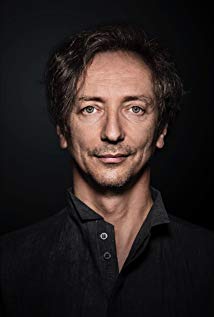
Supe Troop’s Laura Katz spoke with composer Volker Bertelmann (also professionally known as Hauschka) about film scoring and the upcoming film Hotel Mumbai, on which they both worked.
Supe Troop (ST): Is there a particular score that inspired you to branch into film scoring?
Volker Bertelmann (VB): Yes, I think it was Sergio Leone’s score for Once Upon a Time in America. I was young when I heard that music, and I felt it was much more than background music for a film. Another soundtrack was the Vangelis soundtrack for Blade Runner. I had as a young kid a Moog Prodigy Synthesizer and a Big Lesly behind my bed, and I always tried to make the big synth sounds. I was sitting in my bed under the blanket with the synth on my knees, and my room was full of bass.
ST: What do you like about film scoring that is different than your other work?
VB: I like collaborating with other art forms, and I think how a director or a film editor look at a film is always different then my view. I am also interested in solving problems or trying to find common ground, which makes me stretch out of my comfort zone, and I think that makes everyone flexible and interested.
ST: What is an example of where you think another composer nailed a project or a particular scene?
VB: I think Johann Johannsson nailed the beginning scene of Sicario with these interesting contrabass glissandos and the very low muffled percussion. It feels exactly like the film is.
ST: How do you start on the score for a new project?
VB: I read the script first, we mostly do a spotting session, and then I let the film run and pick out a scene that I instinctively like and want to start with. Sometimes I need the unimportant cues to get into the film.
ST: Most directors and producers don’t have a technical background in music, and, thus, may not communicate in the way a musician would be used to. How do you break down that barrier?
VB: Well, I think I am there to actually help the director to express himself better by giving him options. It is mostly about finding concrete music to clarify the descriptions. ‘Cause descriptions are sometimes too rough. Let’s [say] someone describes the music as being “intimate,” but I think intimate is nearly silent; then we have to find a common ground, and that only works by trial and error and finding options … to figure out how the language of the director sounds and also how my vision sounds. In the ideal case, those two things are meeting each other.
ST: I’ve been a fan of your music for such a long time, so it was so exciting when you joined us on Hotel Mumbai. Is there one cue from that film you particularly enjoyed creating?
VB: I loved actually the cue when the gunmen arrive at the shore and jump into the taxi, and I had to find a melody that is not too Eastern sounding but has an Eastern approach. I also thought what was very difficult [was] to not make the music heroic for gunmen that killed many people, including kids that were totally helpless.
ST: What is some other music you are listening to these days?
VB: I have listened recently to an opera by Rachmaninov called “Aleko.” I love the shortchanges in this composition and the movements of the low strings. I am getting more and more interested in music that has similarities to electronic music but is made acoustically.
ST: What projects are you working on now or soon that you are excited about?
VB: I finished a series called The Name of the Rose, based on a book by Umberto Echo, starring John Turturro and Rupert Everett. I am starting another movie in March, called Summerland, which I loved when I saw the first rough cut… so this year has a lot of films in the pipeline, I guess.
ST: What is your favorite soup?
VB: The vegetable soup of my mum, which is a little bit like minestrone.
ST: Sound delicious!
Check out the tag below for more info on Hotel Mumbai and catch the film in select cities on March 22nd and the rest of the US on March 29th!